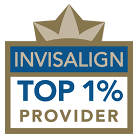Orthodontic FAQs
Orthodontic Treatment: Commonly Asked Questions
What does the term “orthodontics” really mean?
If you have a problem with your teeth or face structure, you may need orthodontics (also known as dentofacial orthopedics) to help you correct it.
What is an orthodontist?
Two to three years of extra training and experience are required to become an orthodontist. Correcting incorrect jaw structure and enhancing the function of a patient’s smile are some of the goals of orthodontic treatment.
What is the ideal age to see an orthodontist for treatment?
You may consult an orthodontist at any age if you want to enhance the appearance and feel of your smile. It’s recommended that children first see an orthodontist around age seven, but one in every five orthodontic patients are above the age of 21, making orthodontic treatment not only for kids and teenagers. Any time is an excellent time to see an orthodontist, whether you’re thinking about it for yourself or your kid.
If I have braces or a retainer, how can I properly care for my teeth?
- Always remember to clean and floss your teeth after each meal.
- Ask your dentist or orthodontist whether you require a fluoride rinse, and use fluoride toothpaste. Make sure you brush and floss your teeth twice a day.
- Remove your retainer before eating so that you may clean and floss your teeth and to prevent it from becoming lost or destroyed, store it in its container.
- Brushing your retainer gently with toothpaste and a toothbrush can help keep it clean, as will flossing between your teeth. Alternatively, your orthodontist may direct you to soak it in a denture cleaning. Keep your retainer out of the dishwasher and out of the boiling water.
- Avoiding meals high in sugar can help keep your mouth free of plaque and cavities, which are the result of bacteria growth.
- Keep away from hard and sticky foods (caramel, chewing gum, gummy bears), as well as anything that might become trapped in your braces (hard sweets, nuts, ice cubes) (corn on the cob, soft bagels, ribs, taffy, etc.).
- Make an appointment with your dentist for regular checks. Visiting the dentist every six months is a good rule of thumb.
What are braces?
Braces are a medical device that straightens your teeth.
Your orthodontist will use braces to help you achieve a better smile. Types of braces include:
- Clear braces
- Ceramic braces
- Lingual braces
- Self-ligating braces
- Invisible braces
- Traditional metal braces
How long will I have to wear braces if I get them?
Because each patient’s smile reacts differently to therapy, the length of time spent in braces will vary. Between six and 30 months of therapy are possible, however, the majority of therapies last for 22 months or less
Is wearing braces painful?
For the first few days after getting braces, your teeth, gums, cheeks, and mouth may feel a little achy while your mouth adjusts.
If I get braces do I need to brush my teeth more often?
Brushing your teeth at least three times a day while wearing braces is essential for the health of your teeth, gums, and mouth. To prevent food from becoming stuck in your braces, brush your teeth frequently. For those places where your brush can’t reach, you’ll need to floss every day. Once your braces are in place, your orthodontist may instruct you on how to brush and floss correctly.
Do I still require six-month dental checkups if I’m wearing braces?
Yes! It’s even more vital for orthodontic patients to see their dentist frequently. Food may become stuck in your braces in locations where your toothbrush can’t get to it. Gum disease, gingivitis, and other oral health problems might result from the germs that accumulate as a result. When you’re wearing braces, your dentist and orthodontist will work together to ensure that your teeth are kept clean and healthy.
For example, can I play an instrument or sing while wearing my braces?
In the beginning, it may be difficult to play an instrument or participate in a contact sport while wearing braces, but this will not keep you from engaging in any of your school activities. Wearing a mouthguard while participating in a contact sport is highly suggested to safeguard your braces or other orthodontic appliances.
What’s the best way to book a new appointment?
Just give us a ring! If you have any questions about scheduling an appointment, please don’t hesitate to contact our receptionists. If you are a new patient or have been referred to our clinic, please let us know and we will give you all the information you need.











